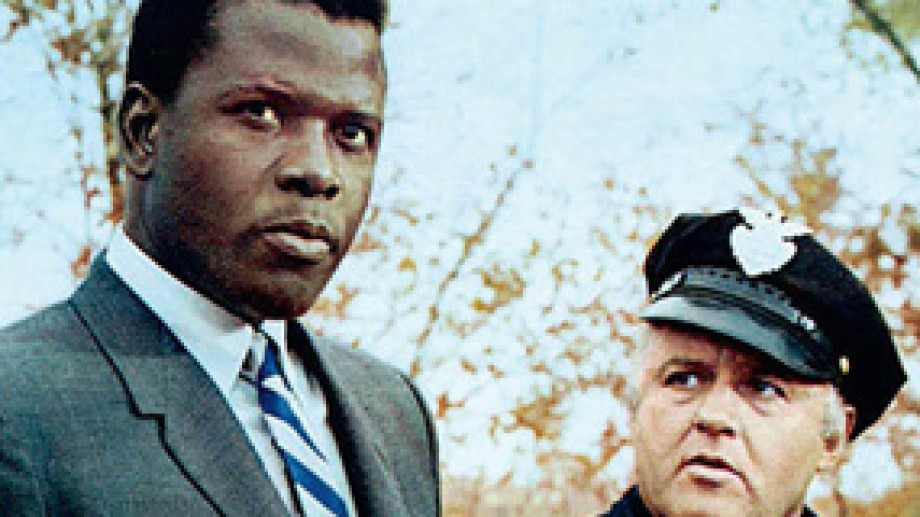
In the Heat of the Night has been on our minds quite a bit this year at the Film Society for Sidney Poitier's unforgettable performance as Mr. Tibbs (Poitier was the recipient of our 38th Chaplin Award), and it is also playing in our Norman Jewison: Relentless Renegade series tomorrow at the Walter Reade Theater. A powerful, racially-charged film that was a critical and box office success when it was released, In the Heat of the Night is Hollywood filmmaking at its best. We reached out to cinephiles to ask them what their favorite Norman Jewison film is, and film critic Joe Leydon chose In the Heat of the Night for the impact it had on his life. The text below is republished with his permission from a piece originally written for GreenCine.com, to which Leydon adds: “one of the happiest days of my life was the day four years ago when I was able to tell Norman Jewison this story at the Denver Film Festival. He seemed pleased.”
“In the Heat of the Night is the first movie that made me fully aware that movies would be more than a hobby for me for the rest of my life. And not just because it's the first movie I ever reviewed for my high school paper while growing up in New Orleans. It's also the first movie that made me appreciate just how powerful the medium can be. No kidding.
I saw In the Heat of the Night two or three times during its first-run engagement at a downtown moviehouse. (The Loews State on Canal Street, to be specific.) But the epiphany didn't hit me until months later. Norman Jewison's racially-charged murder mystery was released in 1967, and picked up several Academy Awards during the April 10, 1968 Oscar ceremony. (Please remember the context for all this: The Oscarcast was delayed a couple of days out of respect for Dr. Martin Luther King, who had been assassinated the previous week.) When In the Heat of the Night was reissued shortly after winning the Best Picture prize, I went to see it again at the Tiger Theater, a second-run house in a working-class neighborhood where, to put it charitably, folks were less than racially enlightened. Early in the evening, however, it occurred to me that most of the other ticket-buyers in the all-white audience might not share my enthusiasm for the film. And I felt my worst expectations would be fulfilled during the scene in which Rod Steiger's redneck police chief questions Sidney Poitier about a recent murder in a small Mississippi town.
Poitier had been arrested for the crime of being a black man in the wrong place at the wrong time. And the wad of cash in his wallet made him appear all the more suspicious in Steiger's eyes. 'What do you do in Philadelphia to make that kind of money, boy?' Steiger demanded. 'That's more than I earn in a month!' To which Poitier replied: 'I am a police officer!' Uh-oh.
I thought – no, I was absolutely certain – the crowd would respond by yelling rude comments about 'uppity' black people. Or worse. But instead, the audience cheered. Indeed, a few voiced their whole-hearted, full-throated approval of a proud black man's take-no-crap response to a surly Mississippi redneck. Which, in 1968, was a pretty extraordinary thing to happen in New Orleans, or anywhere else in the South.
And that's when it hit me: 'My God! Movies can do this!' That is, movies can get people so excited, they can change the way people think. Or even make them feel something that they didn't expect or want to feel. And all of us can feel it together at the same moment.
I know, I know: That sounds simplistic and naïve. But for a 15-year old kid in the darkness of a New Orleans moviehouse, it was a seminal moment. And I'm sure moments like that are what make us fall in love with movies in the first place.”
– Joe Leydon
In the Heat of the Night is playing at 6pm on Friday, May 27 at the Walter Reade Theater. Get your tickets now!



